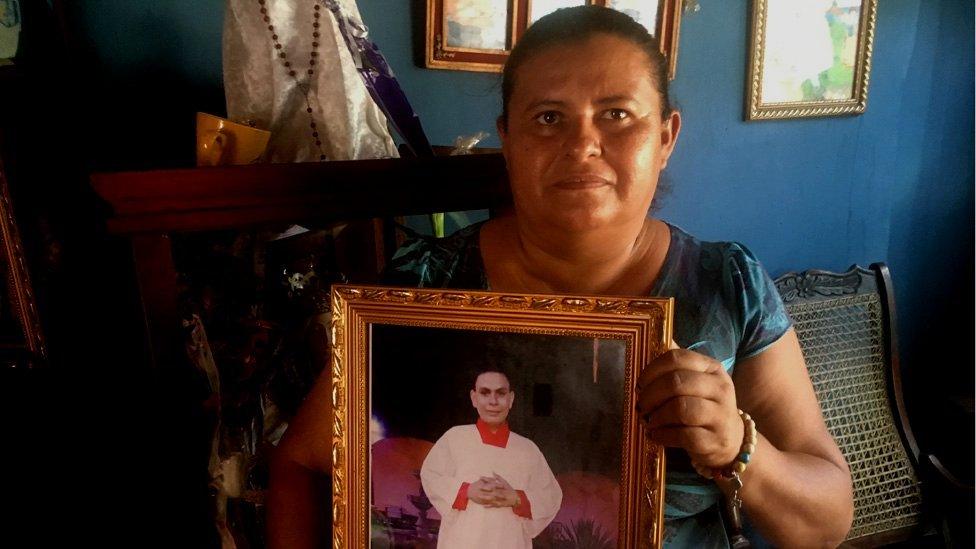Nicaragua political arrests lead Argentina and Mexico to recall envoys
- Published
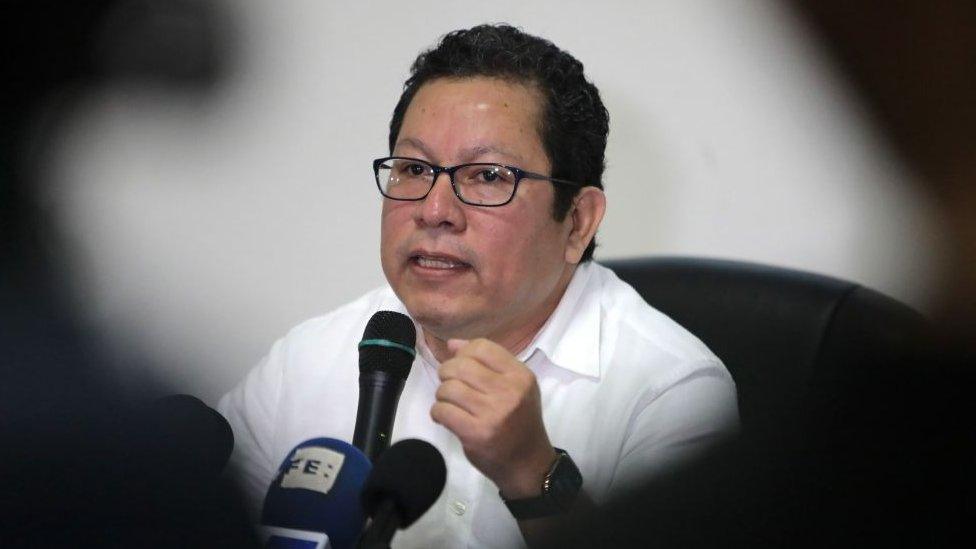
Miguel Mora was arrested on Sunday night
Argentina and Mexico have recalled their ambassadors to Nicaragua following the latest in a series of high-profile political arrests.
A joint statement said the envoys would return to their capitals for talks about the Nicaraguan government's "worrying" actions recently.
It came after another potential presidential candidate was detained.
Journalist Miguel Mora was held under Nicaragua's controversial "treason" law.
He is the fifth presidential hopeful to be arrested in the past three weeks.
The wave of detentions comes five months before elections in which President Daniel Ortega is expected to run for a fourth consecutive term.
Recent actions taken by Nicaragua's government "have put the integrity and freedom of various opposition figures (including presidential candidates), activists and Nicaraguan businessmen at risk," Argentina and Mexico's joint statement, external said.
Both countries would continue to "promote the full respect" of human rights and civil and political freedoms, it added.
The recent wave of arrests has led to condemnation both within Nicaragua and abroad. Regional body the Organization of American States has demanded that all the presidential hopefuls and political prisoners be released.
What's happening in Nicaragua?
Police said that they had arrested Mr Mora, a former director of opposition TV channel 100% Noticias, for "inciting foreign interference in internal affairs and requesting military intervention".
Since 2 June, five presidential hopefuls have been arrested. They are:
Miguel Mora, 57, opposition journalist
Félix Maradiaga, 44, academic and political activist
Juan Sebastián Chamorro, 52, economist
Cristiana Chamorro, 67, daughter of ex-President Violeta Chamorro
Arturo Cruz, 67, former ambassador
As well as the potential presidential candidates, police have also detained a dozen senior opposition figures. They include former comrades-in-arms of Mr Ortega from his days as a Sandinista rebel, who later turned into critics of the president.
Mr Ortega has been a dominant figure in Nicaraguan politics for decades and played a key role in the armed struggle against dictator Anastasio Somoza, whose family had ruled the country since 1936.
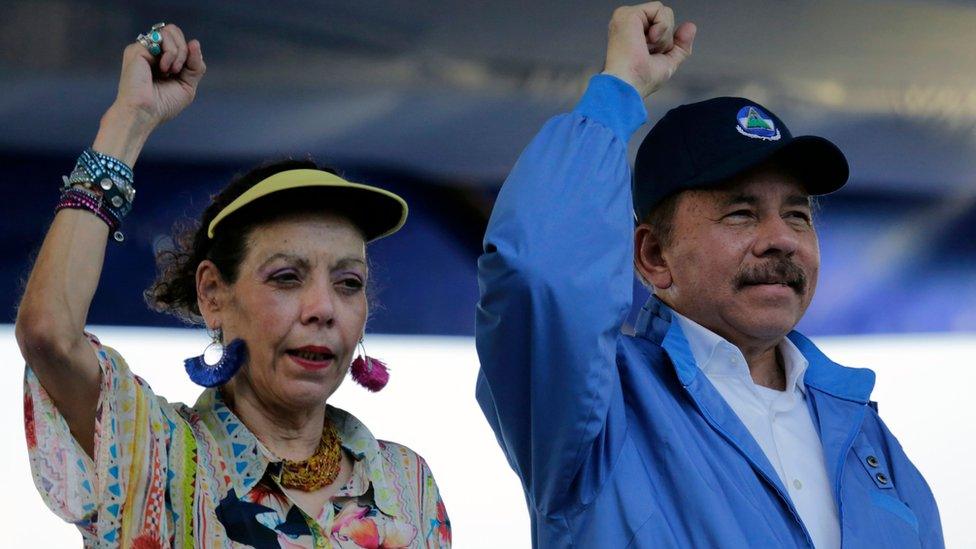
Daniel Ortega and his vice-president and wife, Rosario Murillo, are expected to stand for another term
He formed part of the Sandinista National Liberation Front (FSLN), which seized power after ousting Somoza in 1979. He served one term as president in the 1980s but was defeated in the 1990 election by Violeta Chamorro, whose daughter Cristiana is one of the presidential hopefuls now under arrest.
After rebranding himself as a Christian socialist, he won elections in 2006, 2011 and 2016 and is expected to stand again in the upcoming election in November.
Opposition to Mr Ortega has, however, been growing in recent years.
In 2018, mass anti-government protests swept through the country but were met with a violent police response. Hundreds were killed and thousands were injured in the clashes between the protesters on the one hand, and security forces and pro-government militia on the other.
After many of those who had led the demonstrations were arrested, the protests eventually fizzled out later that year. Mr Ortega rejected calls made at the time for elections to be brought forward and continued to serve his term.
What is the 'treason law'?
Cristiana Chamorro is accused of money laundering, which she denies. The others who have been detained are accused of plotting against Nicaragua's sovereignty and independence and of organising terrorist acts with financial help from foreign powers.
They have been held under a controversial treason law passed in December by Nicaragua's National Assembly, which is dominated by government allies.
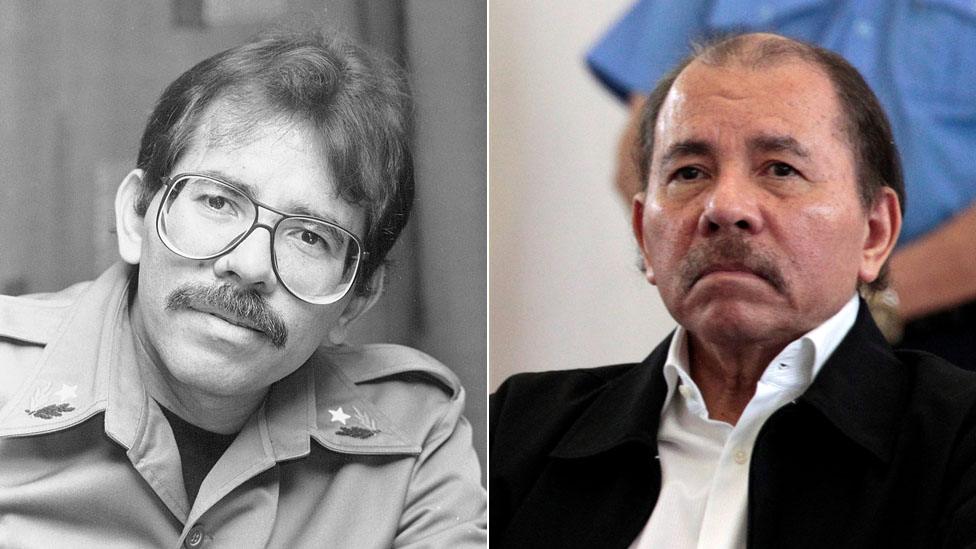
Daniel Ortega in the 1980s and in 2018
Under the law, the government has the power to ban candidates from running for office if they are deemed to be traitors to Nicaragua. Anyone designated a traitor can be sent to prison for up to 15 years.
The government says the law aims to protect "the independence, the sovereignty and self-determination" of Nicaragua. It says the country is under threat from imperialist powers in the US and "coup-mongers" within Nicaragua who are determined to overthrow President Ortega.
But critics say that with November's scheduled presidential poll approaching, Mr Ortega is using the law to target anyone who may stand against him.
Criticism has had little effect on President Ortega and his wife, Vice-President Rosario Murillo. Ms Murillo said on Tuesday that "the law is tough, but it's the law" and called those arrested "usurpers".
You may also be interested in
"Our first day of freedom on American soil"
Related topics
- Published14 June 2021
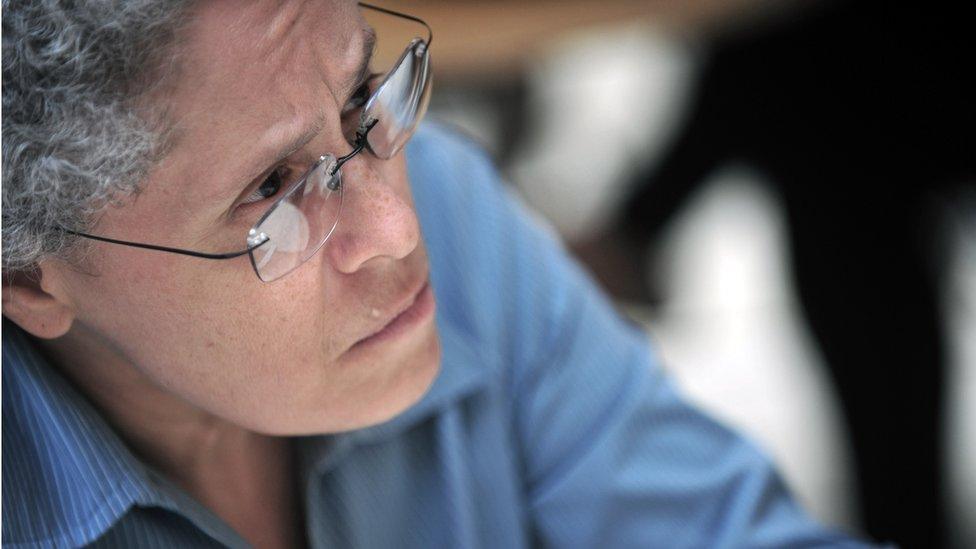
- Published20 October 2020
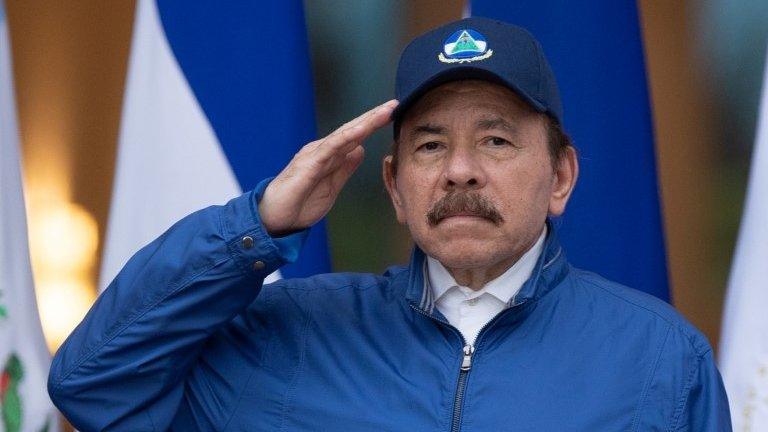
- Published19 July 2019
